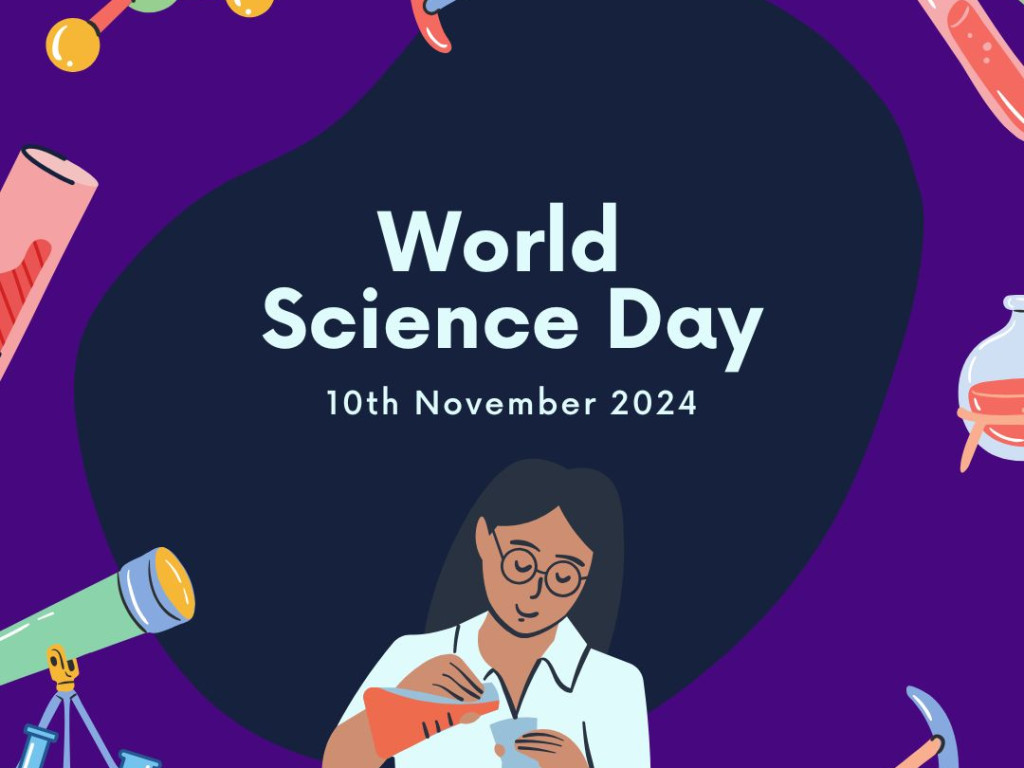UNICEF Day 2024 Quotes
UNICEF Day 2024 is an opportunity for all of us to come together and advocate for the rights and well-being of children everywhere.

Essay on World Science Day in 2000 words. Embracing Science for a Better Future.World Science Day for Peace and Development, celebrated every year on November 10, is an important occasion dedicated to recognizing the crucial role of science in our everyday lives.
Established by UNESCO in 2001, this day promotes scientific literacy, fosters understanding, and underscores the value of science in solving global challenges. By highlighting how scientific advancements contribute to peace, sustainability, and human development, World Science Day encourages individuals and nations to reflect on the potential of science to transform society for the better.
The Purpose of World Science Day
The core aim of World Science Day is to strengthen public awareness of the role of science in peaceful and sustainable societies. This observance addresses the need to bridge the gap between science and society, particularly as scientific issues and innovations increasingly impact people’s lives. By encouraging dialogue on scientific topics, World Science Day helps demystify science, making it more accessible and relevant to the general public.
Moreover, the day serves as an opportunity to address critical issues, such as climate change, biodiversity loss, clean energy, and disease outbreaks, that threaten global stability. By fostering discussions on these subjects, World Science Day brings together scientists, policymakers, and the public to work collaboratively toward solutions, showcasing science as a universal tool for addressing challenges.
The Role of Science in Peace and Development
Science contributes significantly to peace and development through advancements that improve quality of life and drive social progress. From healthcare innovations that prevent diseases to agricultural advancements that combat food insecurity, scientific achievements help communities around the world become more resilient. In environmental conservation, for instance, science has enabled us to develop sustainable practices and understand ecosystems, thus promoting efforts to protect biodiversity and mitigate climate change.
Science also plays a vital role in peacebuilding. By fostering international collaboration in research, scientific communities can transcend national boundaries and promote mutual understanding among diverse groups. Initiatives like CERN (the European Organization for Nuclear Research), where scientists from around the world work together on groundbreaking projects, exemplify how science can serve as a unifying force. By transcending political
World Science Day for Peace and Development: Embracing Science for a Better Future
World Science Day for Peace and Development, celebrated globally on November 10, is dedicated to highlighting the essential role science plays in fostering peace, sustainability, and progress. Established by UNESCO in 2001, this day aims to build bridges between science and society, enhancing the public’s understanding of scientific concepts and fostering dialogue on the role of science in tackling global challenges. By celebrating World Science Day, people are reminded of how science contributes to improving lives, promoting sustainable practices, and advancing solutions for a peaceful future.
The Importance of Science in Society
Science is a cornerstone of human development and innovation. From medical breakthroughs that save lives to technological advancements that connect us, science continuously transforms society. World Science Day reminds us that science is not an isolated discipline but one that touches every aspect of human life. Whether addressing health issues, climate change, food security, or renewable energy, science offers the tools and knowledge necessary to understand and solve many of the world’s pressing issues.
This day also serves as a reminder of the need for scientific literacy among the public. In a world where misinformation and pseudoscience can easily spread, a strong understanding of science helps people make informed decisions, from personal health to environmental responsibility.
Bridging Science and Peace
One of the unique aspects of World Science Day is its focus on peace. Science contributes to peace by promoting cooperation and dialogue across borders. Collaborative international research allows scientists to work together on issues like disease outbreaks, disaster relief, and sustainable resource management. Such efforts demonstrate how science transcends cultural, political, and geographical boundaries, uniting people in pursuit of common goals.
Themes and Activities of World Science Day
Each year, UNESCO selects a theme for World Science Day that highlights a specific issue or area where science can contribute significantly. Past themes have included topics such as climate action, science for sustainable development, and health. These themes encourage schools, universities, scientific organizations, and governments worldwide to organize events, debates, and discussions. Activities may include science fairs, exhibitions, and lectures, all designed to engage the public and foster a greater appreciation for science and its impact.
Looking Toward the Future
World Science Day is a celebration of human curiosity, innovation, and resilience. As we look to the future, embracing scientific advancement will be critical for addressing global challenges. By continuing to support scientific research, promoting public understanding of science, and fostering international collaboration, society can build a more sustainable, peaceful, and equitable world.
In conclusion, World Science Day for Peace and Development serves as an annual reminder of the power of science in our lives and its potential to bring about positive change. It calls on us all to recognize and support the role of science in creating a brighter, more peaceful future for all.
UNICEF Day 2024 is an opportunity for all of us to come together and advocate for the rights and well-being of children everywhere.
Every year on December 10th, it is celebrated. The Universal Declaration of Human Rights (UDHR) was approved by the UN General Assembly on this day. Get motivational sayings updates to share by reading this article.
International Anti-Corruption Day is celebrated annually on December 9th, bringing people from all around the world together. This significant day encourages a group effort to counteract corruption's pernicious influence and serves as a reminder of the terrible toll that corruption has on society all around the world.

